Quotes - "Through the entire essay... " (pg. 88) Judy automatically establishes herself as top dog, alpha of the class, and shows intense antagonism towards Boy Genius when he arrives at PS-38. Ass Judy reads the essay to the class, she directs her attention towards Boy Genius and "sent... telepathic messages" to show her extreme hatred.
- "You know... " (pg. 207) Judy, even after all this time, and even after she marries Boy Genius, is still intrinsically arrogant and condescending towards Boy Genius. Even though she turns out to be a sweet, caring person, on the inside she is not sympathetic of him but rather offensive when she accuses him of being envious of her.
- "...the rage had... " (pg. 89) Judy provokes rage among other people. especially with Boy Genius. She easily creates conflicts between him with just her attitude alone.
Artifact 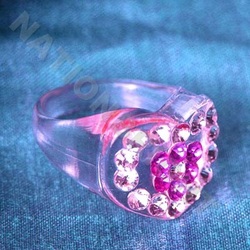 The artifact we chose for Judy Kim was a cheap plastic ring: Even though it thinks of itself as high quality stuff, with its rhinestones and bright colors, it is actually just another piece of colored plastic that you can find in any vending machine in supermarkets. Judy seems sweet and sympathetic on the outside, and even gains support from others (Dr. Namumanu), in in reality she is incapable of understanding Boy Genius and is in turn worthless, like a piece of finger plastic.
- Judy Wang, Anthony Meza, Jordan Wong
Not that long ago, I remember seeing the picture and article about Korean plastic surgery that Jessie posted about. In response, I wanted to share a video about the world’s “most typical” man. In Boy Genius, Dr. Namumanu performs plastic surgery to make people appear Caucasian and therefore fit in with society in the US. I just find it interesting that while Boy Genius, who is of Asian descent, is seeking out Dr. Namumanu, the “most typical” man is actually Asian as well. National Geographic also uses some interesting imaging technology to average facial features and create an image of what the “most typical” man would look like.
http://www.huffingtonpost.com/2011/03/03/meet-the-worlds-most-typi_n_830489.html
- Michelle Fong
First of all, I apologize for the late post, seeing as this conversation happened last Thursday. My group discussed the relation between the character Abraham and the theme of class. Initially this didn’t seem like the most obvious connection, but a closer reading of the text made us realize otherwise.
Quote 1: “He was happy with his booze, his firecrackers, his nonsense songs, and his fantasies about Cuba and the revolution, and I was in no position to take that kind of happiness away from him” (113)
Quote 2: “’I ain’t going. I ain’t got no place to go to. This is the only home I got left. A man ain’t nothing without a home. I learned that from my mama.’” (175)
When we thought about Abraham and his relation to class, we came to the conclusion that Abraham doesn’t find the need to for a high status in society like Boy Genius does. Boy Genius has this dream of living in a big house with white neighbors, a symbol of his acceptance into hierarchical white society, but Abraham on the other hand rejects all notions of class and is content living his days out without money and playing his ukulele. Both of these quotes relate to the main idea we discussed. The first quote shows how Abraham does not prioritize class, and that he is willing to live as a misfit of society. The second quote affirms the previous idea because Abraham is grounded in his roots and the person he is, regardless of the class he was born into. Abraham is very adamant in staying in his home, which can actually be more admirable than striving to climb the class ladder of society.
- Michelle Fong
Banana, oreos, and coconuts respectively mean Asians, African Americans, and Latino folks who identify themselves with inner Whiteness.
I wanted to bring up an interesting point: post-surgery, Boy Genius has a White facade. He seems to enjoy White privilege after all. But there are certain situations in which he has to prove his non-Whiteness or Korean-ness. Is he truly White? Or is he a "reverse banana"--White person with Asian self?
- Kahn Ryu
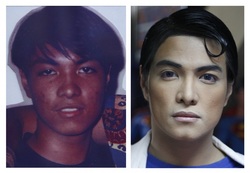 Since I've decided to write my critical essay on Boy Genius, I read the ending a second time for a better understanding of what happened. I'd just like to say, what in the world? There's the strange medley of reality and surreality and by the end of this hurricane of events I'm not sure what is actually happening anymore.
Anyways, my theory is that Boy Genius has some kind of mental disorder that makes him detached from society and see things quite differently from others. How he sees the events unfolding in his life (becoming friends with President Park, making enemies with HIJ, finding himself with a dog pack or inside of a whale, etc.) could be completely different from what is actually happening, which is why many events narrated through the eyes of Boy Genius don't seem to connect or make sense.
I thought one part that designated Boy Genius as a fictional/unrealistic story is the ubiquity of racial transformation. I mean, 30 minute operations that give you movie-star white people looks? To me, this also was one of the major factors to why Boy Genius was an inherently creepy book. The subdued reactions to Boy Genius's overnight transmogrification was also like an eerie silence in the midst of a horror movie. It may have been symbolic, but the changes in physical appearance of Boy Genius, Judy Kim, and HIJ were all rather horrific to me.
Also, the explicitness of violence and sexuality raised a few hairs on my back. It started with a few broken ribs as BG fights with Rex, and that was bearable, if not enjoyable. But, the morbidity of BG's parents' death and BG's sexual rampage after his yellow-to-white transformation left a bad taste in my mouth. Did he really have to name his babymaker Jesus? And to think that if my theory were true, and this was all a figment of BG's imagination, BG actually thought of ALL of this. It just gives me the creeps.
- Judy Wang
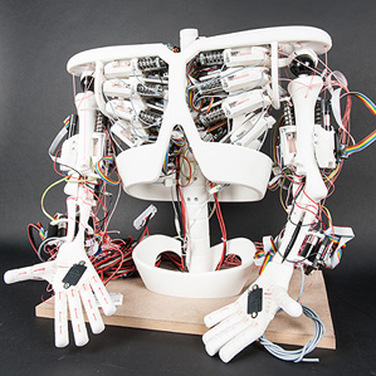 Hey everyone, This week I wanted to share this article I found in the MIT Technology Review about Roboy: a robot with plastic "muscles". Roboy is an attempt to create a robot that mimics human movement. Instead of the precise, calculated movements that are characteristic of traditional robots, Roboy moves in a very natural way since his design is based on the human body. I thought that this article was interesting because Roboy seems like a really important step towards making androids like Rachel from Blade Runner a reality. Here is the link to the article: http://www.technologyreview.com/news/518796/some-robots-are-starting-to-move-more-like-humans/-Mark Craig
A couple years ago I watched the Japanese film Ghost in the Shell. It takes place in a world where those with enough money can choose to transplant their brains into a cybernetic body. Here's a short clip in which the main character questions her own existence because there is no proof that she is any different from a robot with digitized memories. I like this particular scene because it makes me wonder whether it is necessary to have a human body in order to possess a human soul.
- Anna Pham
I just wanted to share an article that I found on Asian Americans and their growing role in technology. This isn't to demean those who aren't Asian Americans, but a sign that people of all races and skin colors and cultures can achieve great things! I'm very excited and happy to hear that jobs are opening up to more diverse cultures. Don't be afraid to aim for goals just because of the color of your skin or your ethnicity.
Here's the link and a short description from the website:
Stereotypes and misconceptions still challenge Asian American tech professionals, but many see improvement
"Diversity can bring to light issues that would otherwise remain hidden." – Alejandro Ogata, senior project designer at HNTB
Link:
http://www.diversitycareers.com/articles/pro/12-octnov/div_update_asian_americans.html
Hope y'all are having a wonderful weekend.
-Rachel Chung
Hey y'all! Happy Sunday Evening!
So our group was assigned to analyze Dr. Namumanu on Thursday. Well, as y'all know, she is a plastic surgeon. Her profession reminded me of this article I saw about half a year ago over 20 Korean beauty pageants looking identical due to plastic surgery. Two lines really popped out to me from the article:
"The popularity of surgery, particularly among the young, has been blamed by some on a desire to look more 'western' fueled by an obsession with celebrity culture. "
"The surgery takes away their individuality and uniqueness and its sad. Most are beautiful without it but telling them that their Korean ethnic features are in fact lovely is as effective as screaming at a brick wall. They won't believe you because they've been brainwashed to think westernization of their features is superior. I don't think they want to look white, but a mix of white and Asian and definitely less Korean."
When I was reading Boy Genius, I felt that a boy changing his physical appearance to match the majority crowd in America is ridiculous and it only exists in fictional novels. Yet when we think about the world around us, maybe in different contexts, cases like Boy Genius do exist and it is scary to think how strongly some people feel the need to change their looks to fit in the crowd.
You can read more about this at this link: http://www.dailymail.co.uk/news/article-2314647/Has-plastic-surgery-20-Korean-beauty-pageant-contestants-look-Pictures-contest-hopefuls-goes-viral.html
Question: So what do y'all think about plastic surgery?
--Jessie Wu
And I thought I've seen everything! Being a b-boy myself, it's amazing to see such creative inventions such as this one! 8D
Jordan Wong
|

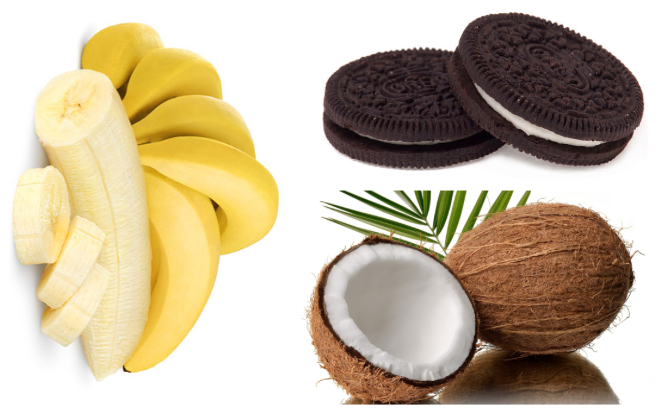


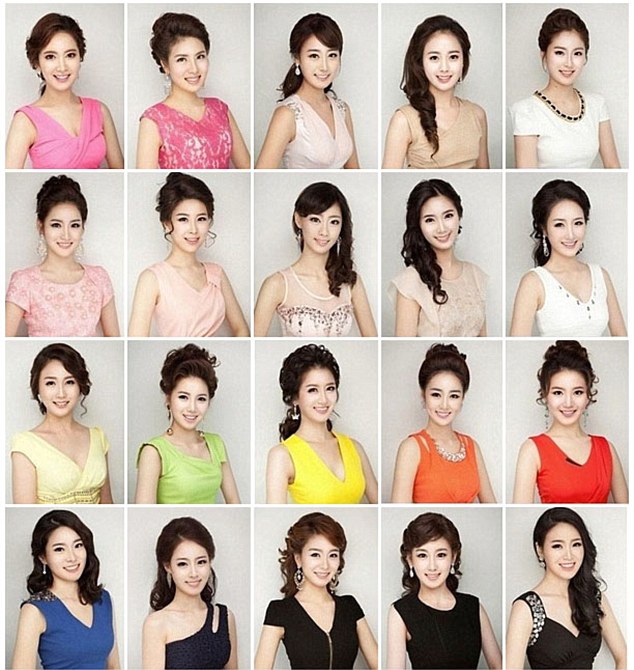
 RSS Feed
RSS Feed